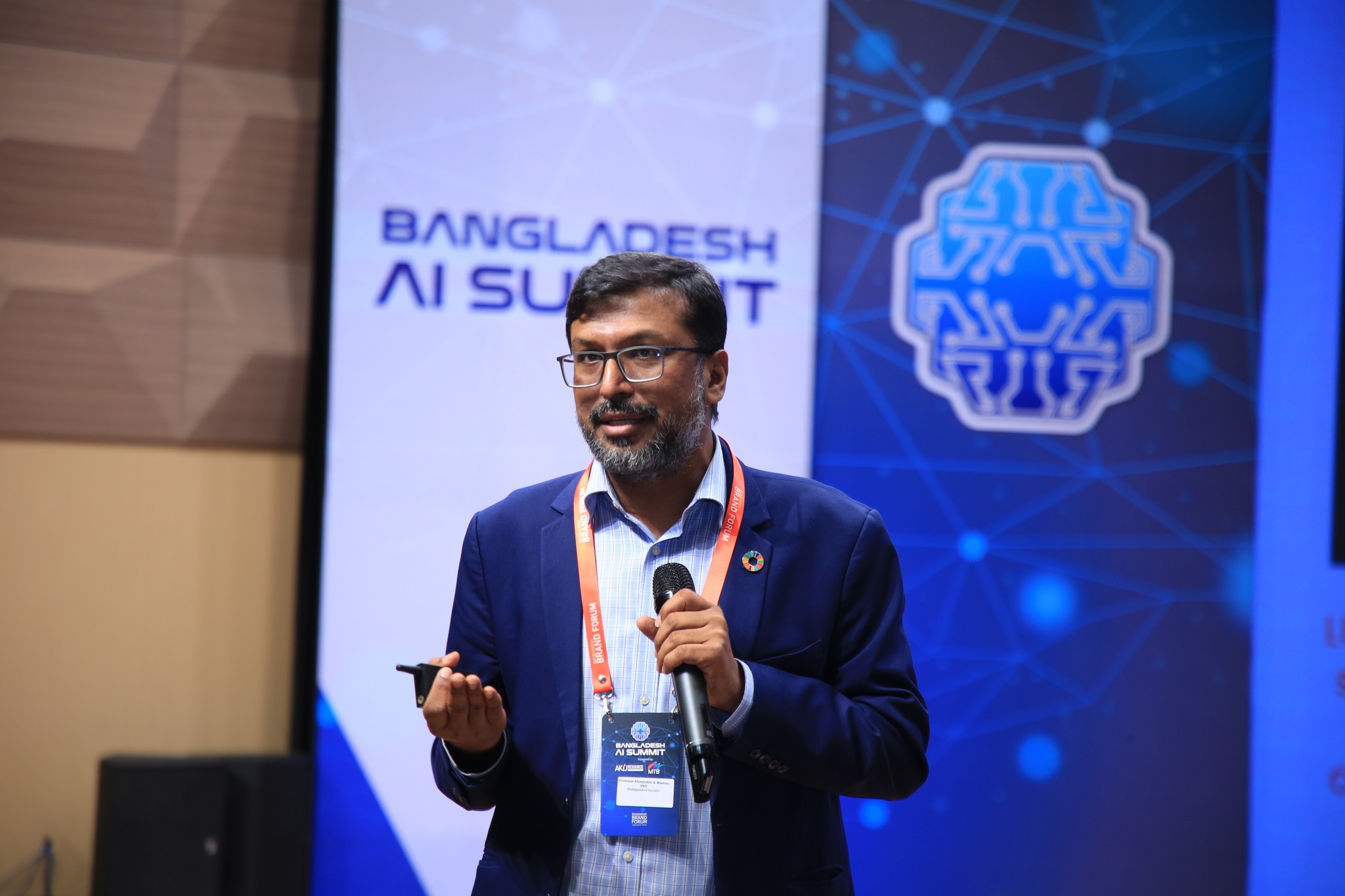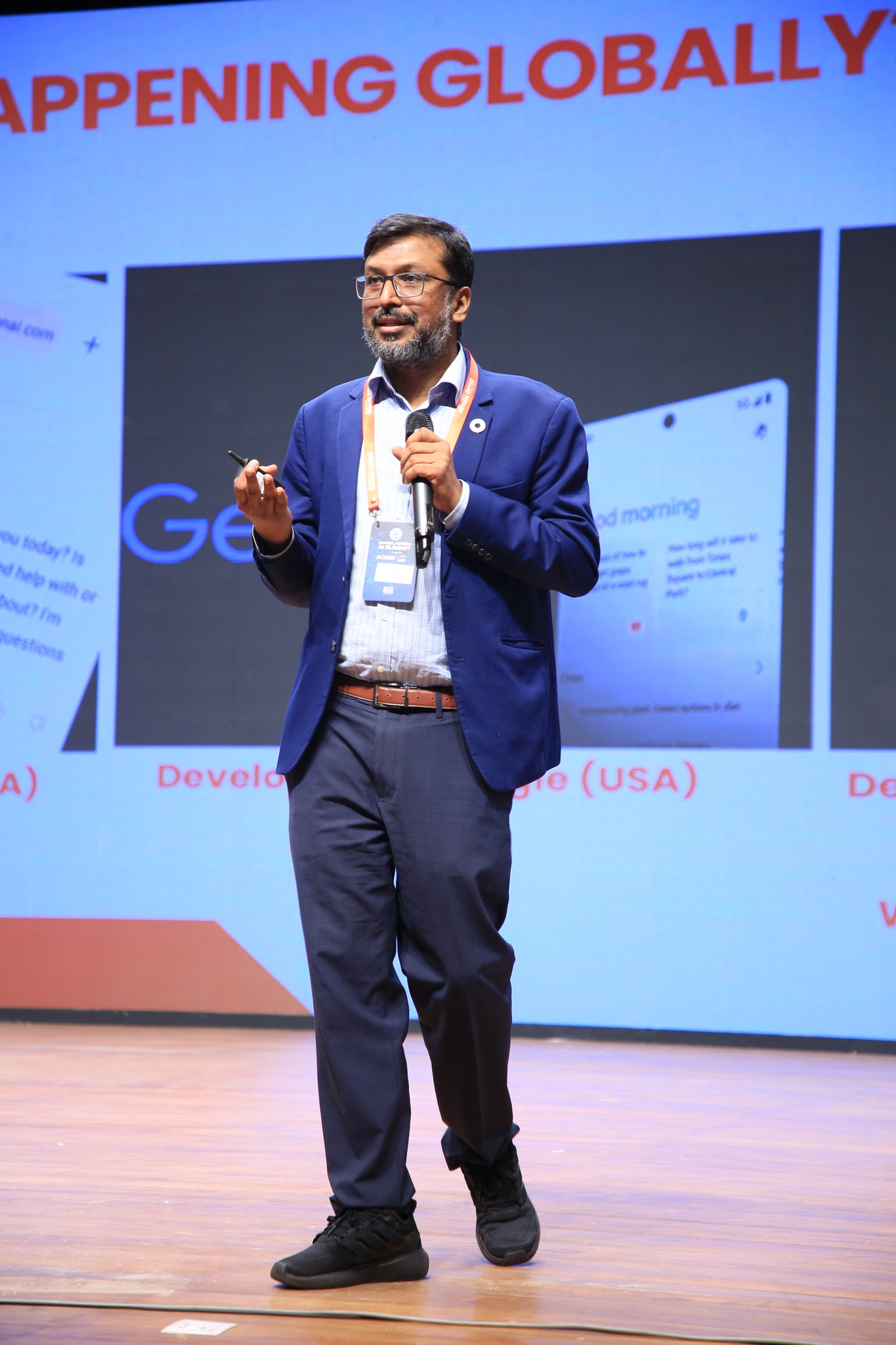
Professor Khondaker A. Mamun Highlights the Global AI Shift and Its Implications for Emerging Economies at Bangladesh AI Summit
At the recent Bangladesh AI Summit, held as part of an initiative by the Bangladesh Innovation Conclave in collaboration with BRAC Business School and organized by the Bangladesh Brand Forum, Professor Khondaker A. Mamun, PhD, delivered a powerful keynote session titled “The Global AI Shift: Opportunities and Threats for Emerging Economies.”
In his keynote, Professor Mamun emphasized that the rapid growth of artificial intelligence has been primarily driven by significant advances in neural networks. He specifically acknowledged the pioneering contributions of Geoffrey Hinton, whose work enabled transformative technologies like ChatGPT after over 15 years of research. According to Professor Mamun, this technological evolution marks the onset of the Fifth Industrial Revolution—an era defined by the integration of AI into human-centric ecosystems. He pointed out that many nations are already navigating this revolution, and it is crucial for emerging economies to actively engage in shaping the global AI landscape rather than merely reacting to it.
One of the central themes of his address was the importance of inclusive and ethical AI development. Highlighting Africa’s April 2025 Declaration—which commits $60 billion to ethical AI initiatives across more than 50 nations—Professor Mamun framed it as a bold example of how emerging regions can assert leadership in the global AI race. He urged policymakers and academic leaders in South Asia and beyond to consider similar strategic investments in AI innovation.
Professor Mamun also advocated for the establishment of innovation hubs within universities and government offices, emphasizing their role in driving localized problem-solving through AI-driven research and development. These hubs, he explained, can play a critical role in generating context-specific solutions for challenges unique to emerging economies, such as healthcare access, education, agriculture, and disaster response.
Another major point he raised was the need for educational reform. Citing the UK’s forward-thinking approach, where AI, leadership, entrepreneurship, and sustainability are now mandatory parts of the national curriculum, Professor Mamun emphasized the urgency of preparing young minds for the future. He stressed that for countries like Bangladesh, integrating such themes into education systems is essential for ensuring that the next generation is equipped not just to participate in but to lead the AI-driven future.

Bangladesh AI Summit provided a vital platform for these important conversations. With the world rapidly moving toward intelligent technologies, Professor Mamun’s insights served as a wake-up call for emerging nations to invest in capacity-building, ethical governance, and human-centric AI innovation.

